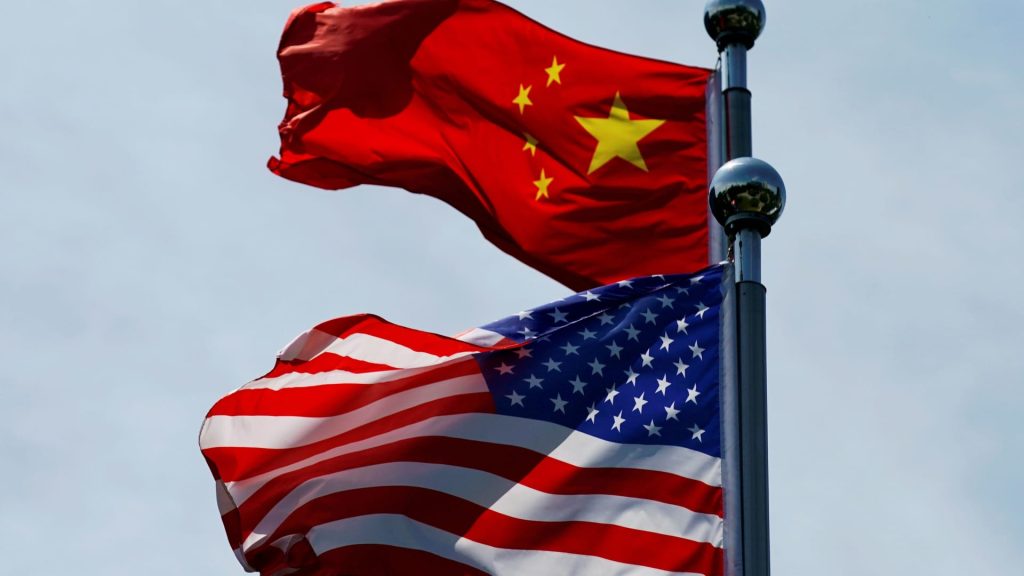A significant diplomatic dialogue between the U.S. and China has not managed to alleviate the ongoing global shortage of rare earth metals, which is threatening to impact production across various industries. As communication between the two nations continues amidst fluctuating trade relations, businesses are concerned about the potential halt in production of critical components, particularly in the automotive and technology sectors. China’s recent export controls have heightened the urgency of the situation, impacting both American and European firms reliant on these essential raw materials.
| Article Subheadings |
|---|
| 1) Rising Concerns Over Rare Earth Shortages |
| 2) Implications for U.S. Businesses |
| 3) Europe’s Vulnerability to Export Controls |
| 4) Japan Faces Production Challenges |
| 5) Escalating Export Restrictions |
Rising Concerns Over Rare Earth Shortages
The issue of rare earth metal shortages has escalated significantly, with both U.S. and Chinese officials now closely monitoring the situation. Rare earths are a group of 17 metals crucial for the manufacturing of various high-tech products, including smartphones and electric vehicles. The current supply crisis has arisen following new export restrictions imposed by China, which dominates the global production of these critical minerals. In addition, a recent communication between U.S. President and Chinese President has not yet yielded any meaningful resolutions. As manufacturers brace for potential disruptions, the concern is that a halt in rare earth exports could lead to production delays, especially in the automotive and electronics sectors this summer.
Implications for U.S. Businesses
The American business community is already feeling the strain of these restrictions. Reports indicate that more than 75% of companies impacted by the shortage believe their existing supplies of rare earths will be depleted within three months. Industries particularly affected include high technology, research and development, and manufacturing, which rely on these materials for production. The situation has drawn attention from trade organizations, who are urging policymakers to take action to prevent a looming crisis. Despite a recent trade agreement between the two nations, China’s export control measures have remained in place, raising questions about the future of U.S.-China trade relations.
Europe’s Vulnerability to Export Controls
Beyond the shores of the U.S., European companies are also grappling with the fallout from China’s rare earth export restrictions. Reports from industry association CLEPA indicate that several auto parts manufacturers in Europe have had to suspend production due to delays in receiving necessary materials. The EU Chamber of Commerce in China highlights the challenges facing businesses, noting that only a fraction of export license applications has been approved by Chinese authorities. Some industries have expressed worry about the potential for increasingly widespread disruptions in sectors that depend on these materials for manufacturing. Ultimately, the lack of transparency and communication in the approval process has left many businesses on edge.
Japan Faces Production Challenges
Japan has not escaped the clutches of the reverberating effects of China’s rare earth export restrictions. A noteworthy instance involves the automaker Suzuki, which recently halted production of its popular Swift model, citing the severe lack of rare earths as the primary reason. Production is expected to resume on June 13; however, the long-term implications of these restrictions remain uncertain. China’s Foreign Ministry has insisted that the export controls are consistent with universal practices and not targeted at specific nations. This assertion has not quelled concerns among Japanese businesses that stand to lose significant revenue due to halted production lines.
Escalating Export Restrictions
The trajectory of China’s restrictions on critical minerals has displayed an alarming upward trend, particularly in recent months. Following the introduction of export controls on gallium and germanium—including metals used extensively in chip manufacturing—China has broadened its focus to additional minerals. The latest controls on antimony and tungsten have heightened concerns regarding their applications in military and civilian technology. With tungsten being crucial in automotive manufacturing, analysts caution that Western companies may face dire shortages in the coming months. As the impact of these measures mounts, the urgency for countries reliant on these minerals to secure alternative supply chains has never been clearer.
| No. | Key Points |
|---|---|
| 1 | China’s recent export controls on rare earths are causing concern among U.S. and European businesses. |
| 2 | 75% of companies surveyed expect to run out of rare earth supplies in under three months. |
| 3 | European auto parts manufacturers are facing production halts due to the export restrictions. |
| 4 | Japanese automakers, particularly Suzuki, are also experiencing production challenges. |
| 5 | Export restrictions on critical minerals are escalating as China tightens its grip on market control. |
Summary
The ongoing rare earth shortages, exacerbated by China’s tightening export controls, pose a serious challenge for industries worldwide, particularly in the United States and Europe. As companies navigate the complexities of these restrictions, the need for effective diplomatic engagement becomes increasingly critical. Failure to resolve these issues could result in severe impacts on production capabilities and broader economic ramifications, underlining the interconnectedness of global supply chains.
Frequently Asked Questions
Question: What are rare earth metals and why are they important?
Rare earth metals are a group of 17 elements essential for various high-tech products, including electronics, batteries, and military equipment. They possess unique properties that make them crucial in manufacturing and technology.
Question: How have China’s export restrictions affected global supply?
China’s export restrictions have severely impacted global supply chains, particularly for companies in the U.S. and Europe, leading to production halts and shortages of essential components necessary for manufacturing.
Question: What steps can companies take to mitigate the impact of these restrictions?
Companies can explore alternative suppliers, invest in recycling technologies, and advocate for policy changes that reduce dependencies on critical minerals subject to export restrictions.
